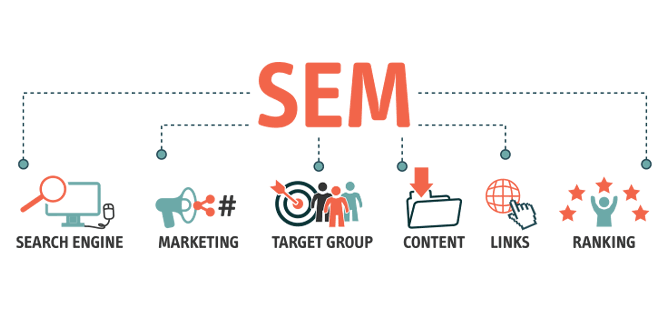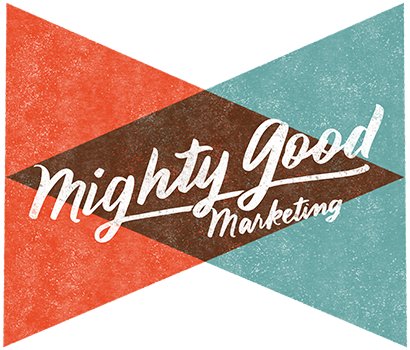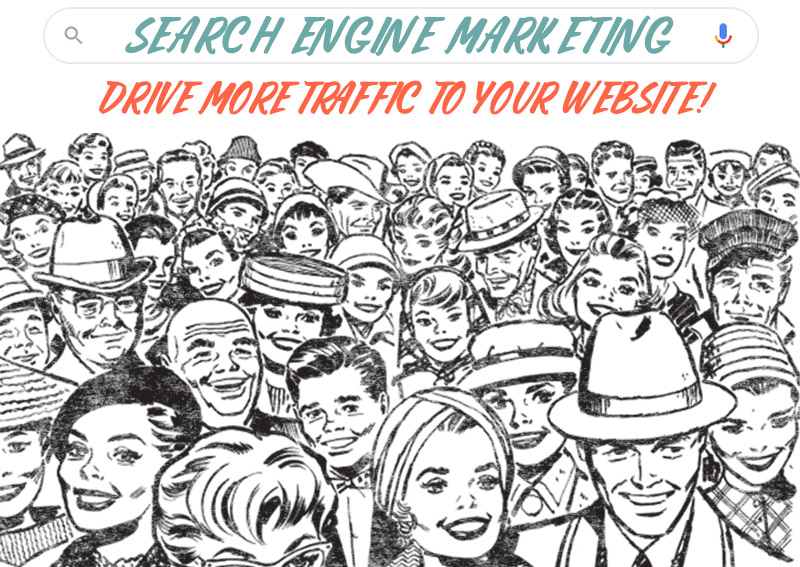What is SEM and How Can It Benefit Your Small Business?
If you’re a small business owner who’s been looking for a way to drive traffic to your website almost instantaneously, search engine marketing may be right for you.
Search engine marketing (SEM), also commonly known as pay per click (PPC) advertising, is a marketing strategy that involves paying for keyword-based advertisements. These ads are then displayed on search engine result pages (SERPs) when potential customers search for those relevant keywords. The best part? You only pay for ad impressions that bring visitors directly to your website.
Interested in learning more about SEM, how it works, and why it’s important? Our crash-course covers all the basics.

How Does SEM Work?
Each major search engine offers its own SEM platform, with popular choices including:
- Google Ads (previously AdWords)
- Bing Ads
- Yahoo Search Ads
And while each search engine has its own SEM algorithms and nuances in place, they all operate in more-or-less the same way. The marketer selects a keyword or set of keywords they’d like to advertise for, as well as a geographic location in which the ad will be displayed. From there, some short text-based advertising copy is written and the marketer “bids” on a price that they’re willing to pay for each time a person clicks on the ad.
When there is competition for an ad and the search engine’s algorithm has to choose which ad to run, this is often referred to as an “ad auction.” If there are multiple “bidders” for a selected keyword (which is often the case), the advertising spot doesn’t necessarily go to the person who has offered the highest price per click.
A search engine ad can be up and running in a matter of minutes, and businesses can begin seeing results (including increased website traffic) right away.
The Link Between SEM and SEO
Both involve a focus on getting your site on SERPs, but in very different ways. And, ideally, both SEO and SEM should be a part of your small business marketing strategy.
Benefits of Using SEM
Geo-Target Your Ads
Gain Instant Access to Buyers
There isn’t really another form of marketing that allows you to enjoy the instantaneous results of search engine marketing. Within minutes, you can place a bid for an ad, have it published, and begin seeing results. This is very different from organic SEO marketing, which can take weeks or even months to reach measurable results.
Increase Web Traffic
Since people who click on your ad are taken directly to your website, search engine display ads are a great way to drive traffic to your site.
Optimize Your Budget
Because you only pay for each click on your ad, SEM is a very low-risk marketing strategy. And it’s important to remember that even when people aren’t necessarily clicking on your ad, they’re still seeing it. In this sense, search ads can be considered “free” advertising for your business.
What Goes Into SEM?
Yes, you might spend a bit more to land paid ads on Google, but for many businesses, the exposure is worth the price. And depending on your budget, you may want to branch off into other search engines as well. Ultimately, only you will be able to decide which search engine’s ad platform is right for your current needs and budget. Some small businesses decide to start on less expensive platforms like Bing Ads and Yahoo Search Ads, whereas others may be willing to spend more on Google Ads.
Once you've decided on the platform(s) you'll be targeting with your search ads, it's time to get started in creating your first ad campaign.
Consider Hiring a Professional
Think About Your Goals
Even when working with a marketing expert, it’s important to ask yourself “what do we want to get out of this campaign?” In fact, this is likely one of the first things your marketing professional will ask you. For an SEM campaign, your goal might be to increase your web traffic by a certain percentage. Or, if you’ve geo-targeted your ads, you might want to see an increase in traffic from a specific geographical region. Whatever your goals may be, make sure to communicate them clearly.
Understand Keyword Planning
One of the most important aspects of your search engine marketing campaign will be your targeted keywords. It’s important to remember that you want to be focusing on the keywords that your target audience is most likely to be searching for.
Again, this is where working with a professional can make your life a lot easier. Keyword research is time-intensive and often requires the use of keyword-planning tools. An experienced marketing professional will be able to use specialized tools to perform keyword research and determine which keywords are best-suited for your paid ads based on factors like:
- What your target audience is searching for
- Which keywords will result in the most conversions
- Which keywords are the most cost-effective
Understand How Quality Score Works
Remember, simply placing the highest “bid” for your ad doesn’t guarantee placement. Your ad’s quality score also plays a major role. Quality scores on Google Ads range from 1-10—and you’ll want to aim for a 10. The higher your score, the better the chances of success. Factors that go into your quality score include click-through rates, keyword relevance, and your landing page experience. These are all aspects that your marketing professional can optimize so you don’t have to lift a finger.
Measure Your Results
The only way to improve your SEM strategy is to measure your results and make changes as needed. There are plenty of tools out there that can help marketers gain a better understanding of how your ad campaigns are performing, and the professional you’re working with will be able to use these tools to inform your SEM campaigns. He or she will also be able to explain these metrics and your ads’ performance in an accessible way.
- Ad impressions
- Number of clicks on your ad
- Visitor page depth
- Visitor time-on-site
As with any type of marketing, SEM will require a bit of trial and error. However, with careful goal-setting, analytics, and help from a marketing pro, you can carry out a successful SEM campaign that drives traffic to your business website.
The Bottom Line
When it comes to marketing strategies with very little risk and the potential for big results, search engine marketing is an excellent use of marketing dollars for businesses of all sizes. Now that you have a better understanding of how search engine ads work, are you ready to start taking advantage of all the benefits search engine marketing can yield for your growing business?
Mighty Good Marketing is a digital marketing agency located in Flowery Branch, GA and serving the metro-Atlanta area. Need help developing and implementing a successful SEM strategy for your business? Contact us today at 1-866-935-5699 or fill out our form to schedule a free consultation.




